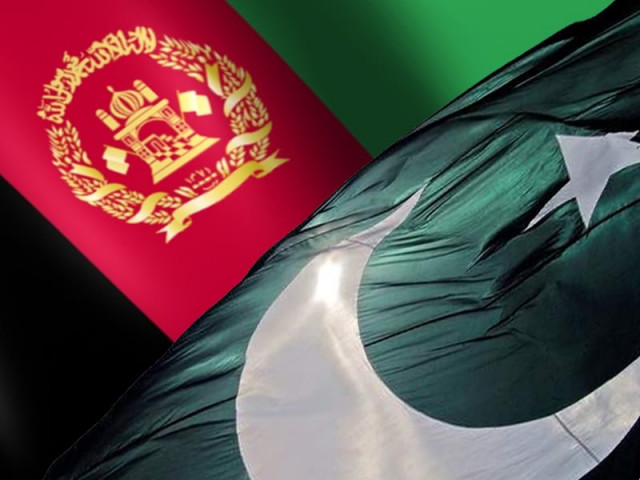Eighth Pak-Afghan JEC begins next week
Two-day discussions will include economic cooperation and other bilateral issues.

The eighth conference of the Pak-Afghan Joint Economic Commission (JEC) in Islamabad on January 16-17 will help to normalise relations between the two countries, a former Pakistani ambassador, Rashid Saleem Khan, told The Express Tribune.
The two-day discussions on mutual trade, economic coordination, transit trade and different bilateral issues will be the first high-level contact between the two neighbouring countries after the assassination of Prof Burhanuddin Rabbani in Kabul last year, Khan added.
Khan served as director general in the ministry of foreign affairs on the Afghan desk for a number of years. “It will be a great opportunity for both countries to repair their diplomatic relations,” he said.
The Afghan minister of finance, who will lead his country’s delegation, will reach Islamabad with a team of officials and Afghan Chamber of Commerce and Industry representatives to participate in the JEC.
The Afghan delegation is expected to make a courtesy call on the foreign minister, Hina Rabbani Khar, Prime Minister Yousaf Raza Gilani and President Asif Ali Zardari.
Pak-Afghan ties experienced a serious setback following President Hamid Karzai’s attempts to implicate Islamabad in the assassination of the Prof Rabbani. Relations saw further deterioration on November 26, 2011, when Nato helicopters from Afghanistan killed 24 Pakistani soldiers in strikes against two military posts near the Afghan border. Pakistan retaliated by boycotting the Afghanistan conference in Bonn on December 5, sticking to its decision despite Karzai’s requests to the PM.
Islamabad also imposed a ban on Nato, preventing supply trucks for the US-led foreign forces in Afghanistan from using Pakistani territories as a mark of protest.
The forthcoming JEC will also discuss the implementation of decisions taken by the two countries at the previous conference.
To ease the talks, PM Gilani allowed a two-month waiver to the Afghan traders for non-submission of financial guarantees for Kabul-bound transit goods in July last year .
He also directed the ministry of finance to constitute three committees to resolve the issues pertaining to the JEC on a priority basis the waiver was extended for another month after the two initial months as officials from both sides could not succeed in resolving the nitty-gritty of the JEC’s issues. The waiver continued despite the expiry of three months.
Under the Afghanistan-Pakistan Transit Trade Agreement Afghan importers were bound to submit insurance guarantees equal to 100% duties on the imported items, in order to curb smuggling and dumping of foods in Pakistan.
Earlier, insurance companies had refused to extend the guarantees due to high premium costs, compelling PM to waive the condition for two months.
A senior official in the ministry of foreign affairs told The Express Tribune that the US is using all available means to make the trade agreement successful.
According to Wikileaks, in a cable from the US embassy in Kabul on November 30 2008, the Afghan Finance Ministry official who briefed the US diplomats about the JEC said that the November 25 meeting took up the critical trade and transit issues and that the Afghan private sector played a helpful role. The Pakistani government, he said, promises to look into them but nothing ever changes.
The cable further said: “Our contact requested the US government’s assistance to press the government of Pakistan to take action.”
Published in The Express Tribune, January 11th, 2012.



















COMMENTS
Comments are moderated and generally will be posted if they are on-topic and not abusive.
For more information, please see our Comments FAQ